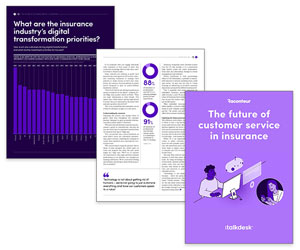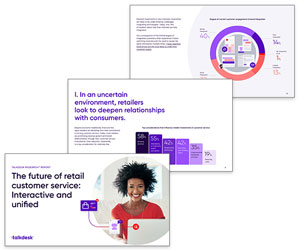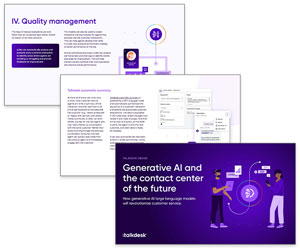budgmplsystems have put together a guide for over the festive season to help manage customer service peaks.
1. Outsource your spikes!
When faced with a sudden spike in demand, many organisations take the easy route and simply turn to expensive agency staff on a short-term basis.
It makes more sense to anticipate demand levels, and choose instead to work with a more flexible outsourced partner that can handle your ‘spike’ traffic – leaving your own staff to focus on core activity. This can reduce both your staffing and training costs, as your skilled teams continue to work at full capacity while your outsourced partner provides a scalable resource of customer service trained ‘bureau’ agents capable of dealing with peaks.
When the busy season is over, turn that solution on its head by having the outsourcer manage the bulk of the core, run-of-the-mill activity – leaving your skilled staff to take care of more technical customer queries.
2. Do you know why you are being contacted?
Some calls are more important than others. That’s just a simple fact. So if someone is calling to tell you that water from a burst pipe is flooding their bathroom you want to prioritise that over someone who is just calling for a copy of their latest statement to keep their records up to date. The challenge is knowing why people are calling, and making sure that you’ve got a process in place for prioritising urgent and important calls over those that are more routine.
The solution is to make sure you have a strong IVR approach that can identify why people are calling – and then route calls according to your chosen rules. This needn’t be too complex. In fact, if you only promote one type of call and relegate another you’ll already be helping your contact centre to cope more effectively with peak demand. Do that one thing, see if it works well – then start on the next….
3. Take the initiative
Also, if you know that a certain activity such as a major bill mailing is likely to prompt an unusually large number of calls from a certain segment of your customer base, you should start actively managing that demand as soon as possible. For example, if the calls are typically from those customers that are late paying, you can make plans to call or email that segment during a quiet time. Every person you’re able to reach in that way will be one less person extending your queues during peak times.
4. Educate customers
Few companies are confident enough to tell their customers not to get in touch – however, many could benefit from identifying those call types that add very little to the customer relationship. By analysing calls you can highlight specific groups of interactions that could be better addressed by answering them in advance – perhaps by producing a welcome pack, or a specific mailing, or an email that is triggered once a certain event has taken place.
5. Increase your resources
You could also think about those employees that are potentially available for drafting into your contact centre resource when it becomes busy. Do you have admin staff that do important – but less urgent – work who you could reallocate as and when the contact centre starts getting overloaded? Easy-to-use and customisable software is available that can sit on staff desktops – whether office or home-based – to enable them to quickly switch into agent mode as demand dictates.

Siobhain Goodall
Again there’s a need to be careful here. There’s no point expending resource on training employees for tasks that they might never need to perform. Similarly, it would be counterproductive to push staff into roles where they might be uncomfortable. However, if handled correctly, such an approach can also provide your staff with a fresh dimension to their work.
There’s also the potential for these kinds of activities to make staff even more customer focused. So even though your immediate goal might be to ensure extra cover over the next few weeks, the longer-term impact of these kinds of initiatives could prove much more valuable.
Siobhain Goodall, Head of Business Development – Outsourcing, www.mplcontact.com
Author: Jo Robinson
Published On: 20th Nov 2012 - Last modified: 17th Sep 2019
Read more about - Hints and Tips, Budget, Customer Service, IFS



















